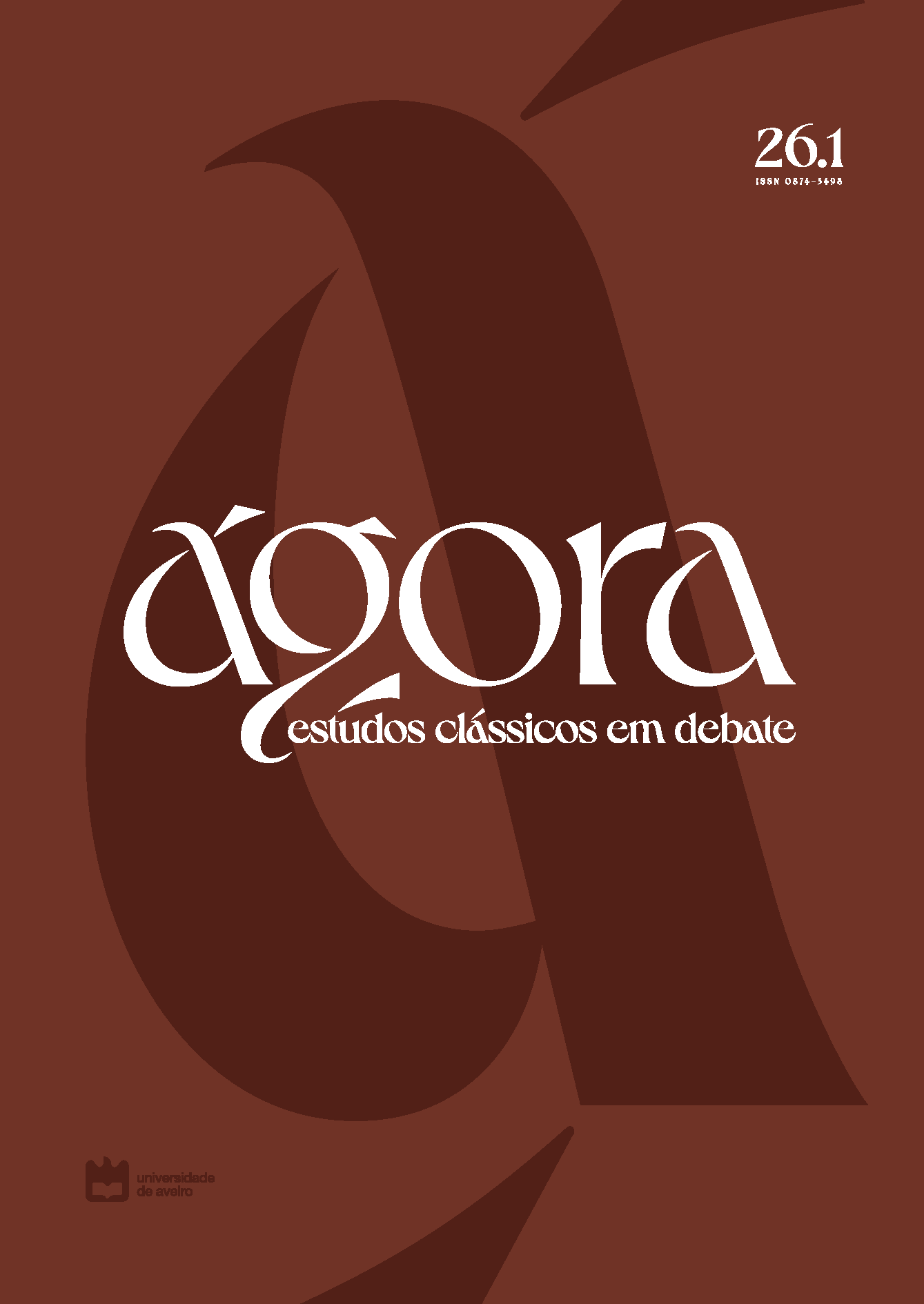Tommaso Campanella and the grammatica philosophica: a heuristic point of view on his Grammaticalium libri III
Abstract
Until some recent studies, linguistic and philosophical historiography have overlooked Tommaso Campanella’s Grammaticalium libri III (1638), in which the philosopher, better known for his political philosophy, composed a philosophical grammar of the Latin language that presented his main linguistic ideas. With this short work, we aim not only to draw attention to this piece but also, more specifically, to one of its fundamental features: its relationship with the philosopher’s logical ideas, presented in his Dialectica (1638). As a result, we also pose some questions about the problematic relationship and composition of both works, accompanied by possible explanations that ultimately call for a modern study of the Dialectica.
Downloads
References
Bossong, G. (1992). Reflections on the history of the study of universals: the example of the partes orationis. In M. Kefer & J. van der Auwera (eds.), Meaning and Grammar: Cross-Linguistic Perspectives (pp. 3-16). Berlin: Mouton-De Gruyter
Delumeau, J. (2014). El misterio Campanella. Madrid: Akal
Ernst, G. (2010). Tommaso Campanella: The Book and the Body of Nature. Dordrecht, Heidelberg, London: Springer
Firpo, L. (1947). L’Opera omnia di Tommaso Campanella nei programmi dell’autore. Rivista di Storia della Filosofia, 2
Padley, G. A. (1976). Grammatical Theory in Western Europe 1500-1700. The Latin tradition. Cambridge: Cambridge University Press
Sánchez Salor, E. (2012). La Gramática en Europa durante el siglo XVII. Dispersión doctrinal (Palmyrenus. Colección de Textos y Estudios Humanísticos). Madrid-Alcañiz: CSIC-Instituto de Estudios Humanísticos
Copyright (c) 2025 Ágora. Estudos Clássicos em Debate

This work is licensed under a Creative Commons Attribution 4.0 International License.










